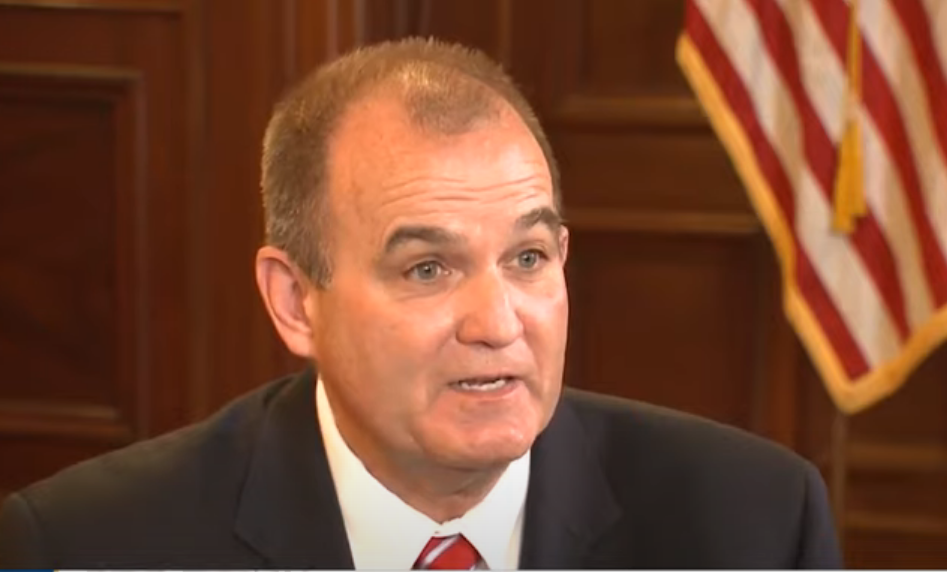By DAMIEN FISHER, InDepthNH.org
Even though Tiffany Foss had reason to believe Department of Safety Commissioner Robert Quinn broke the law when he requested a background search for an acquaintance, her whistleblower complaint can’t go forward since she no longer works for Quinn, according to a ruling issued this week.
“I was afraid this would happen because of the technical nature of the whistleblower rules,” said Andrea Amodeo-Vickery, Foss’s lawyer.
Department of Labor Hearing Officer George Stewart ruled that since Foss left the Department of Safety for another job in state government three weeks after she called out Quinn, she cannot argue she suffered retaliation at his hands as required by the state law.
“(Foss) has failed sufficiently to allege that she suffered adverse employment consequences in retaliation for making the October 4, 2021 report of a violation of rule or law,” Stewart wrote.
Foss was recovering from a stroke, likely brought on by work stress, when Quinn allegedly pressured another civilian employee in the Department of Safety’s Gun Line Unit to conduct an illegal background check on the son of a friend, according to her complaints on file.
The friend’s son had been denied a pistol permit in Massachusetts and Quinn wanted the background check and the man’s criminal record. This information was then used to help the man get a permit, according to the complaints.
Foss emailed her supervisors that Quinn acted illegally in requesting that background check.
“This is HIGHLY illegal and will possibly be an issue on our audit in 2022,” Foss wrote in her email.
Under state law, whistleblowers seeking protection essentially need to prove two things: that they witnessed an illegal act or violation of a rule; and that they suffered some form of retaliation for calling it out. Stewart’s ruling acknowledges that Foss satisfies the first part of the law, that Quinn likely broke the law.
“Accepting the truth of (Foss’s) allegations, and drawing all reasonable inferences favorable to her case, it could be found that she reasonably believed that RSA 106-B:14, I-a and the State Police Standards of Conduct were violated when the contents of an NCIS were (partially) disclosed to a non-law enforcement person,” Stewart wrote.
Stewart’s decision does not mean Foss is wrong about what happened, Amodeo-Vickery said. Neither Stewart, nor the state denies that Quinn sought the background check Foss called out, she said.
“It’s now an adverse decision to any of our allegations,” she said. “Even the state’s motion to dismiss doesn’t deny any of our charges.”
Tyler Dumont, spokesman for the Department of Safety, said in an email: “We would not comment on pending litigation other than to say that the order speaks for itself.”
Quinn has not been held to account in any way for the search. He was renominated this week to the Commissioner’s position by Gov. Chris Sununu, despite the fact the New Hampshire Department of Justice has prosecuted two police officers since December for similar conduct.
Last month, the New Hampshire Department of Justice announced that former Franconia Police Officer Gary Pilotte was forced to give up his police certification and agree to never seek employment in law enforcement again as part of the deal reached with the Attorney General’s Office over his alleged illegal search. In December, the Attorney General’s Office reached a similar deal with former Ossipee police sergeant Justin Swift, who was also accused of misusing the background check system.
Quinn was investigated by the New Hampshire Attorney General’s Public Integrity Unit, but that investigation went nowhere. According to Foss’s complaints, none of the State Police troopers questioned by the PIU talked to investigators. All three troopers have since been given promotions within the agency, according to the complaints.
Amodeo-Vickey plans to discuss an appeal with Foss. They have 30-days to request a rehearing with the Department of Labor. Amedeo-Vickery said another option might be filing a whistleblower petition in the Superior Court.
“I knew it was going to be a hard road,” Amodeo-Vickery said.






